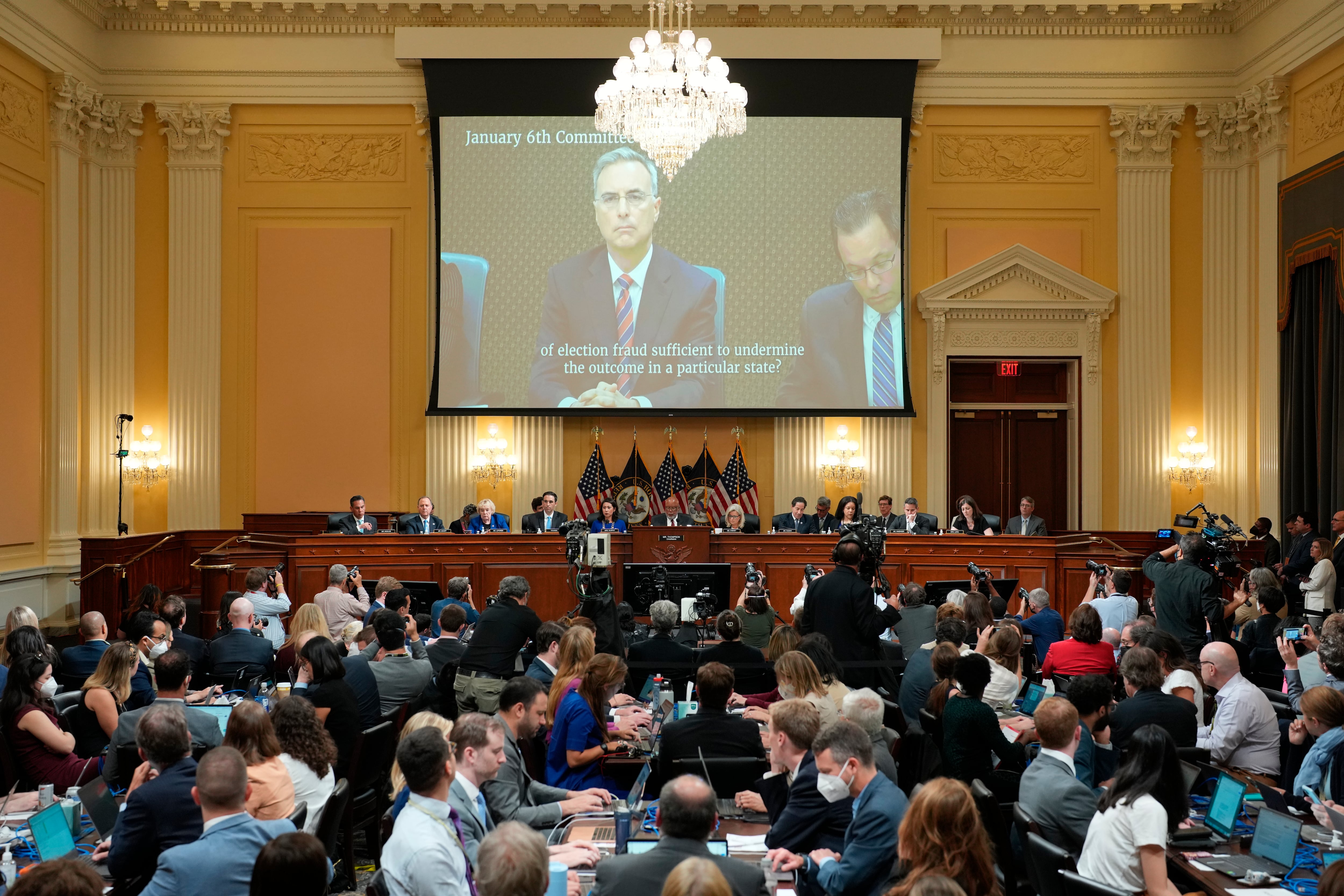A draft executive order by then-President Donald Trump and his allies that would have directed the Pentagon to confiscate voting machines after the 2020 election was discussed in Congress on Tuesday afternoon.
The meeting was the seventh public hearing held by the House select committee formed mostly by Democrat lawmakers to investigate the Jan. 6, 2021, attack on the U.S. Capitol.
Efforts to seize voting machines following the 2020 presidential election were discussed by the committee during the hearing, among other topics, like Trump’s tweets and his plans to go to the Capitol.
A copy of the draft executive order from Trump, which was never issued, was first obtained and reported by Politico earlier this year. It is unclear who wrote the directive; however, it is dated Dec. 16, 2020.
The order would have instructed the Pentagon to “seize, collect, retain and analyze all machines, equipment, electronically stored information, and material records required for retention under” U.S. election law and given the defense secretary 60 days to provide an assessment.
“This proposed order directs the secretary of defense to seize voting machines, quote, ‘effective immediately,’” said Rep. Jamie Raskin, D-Md., during the hearing.
“But it goes even further than that. Under the order, President Trump would appoint a special counsel with the power to seize machines and then charge people with crimes with all resources necessary to carry out her duties,” Raskin continued.
Trump was considering Sidney Powell from his legal team to act as that special counsel, according to Raskin. Trump White House Counsel Pat Cipollone also testified to the committee in a clip played during the hearing that he opposed the move.
“I don’t think Sidney Powell would say that I thought it was a good idea to appoint her special counsel,” Cipollone said. “I was vehemently opposed. I didn’t think she should have been appointed to anything.”
Powell, a former federal prosecutor, was part of Trump’s legal team working to overturn President Joe Biden’s election victory in 2020 through election fraud theories. On Dec. 18, 2020, Powell and others met with Trump to discuss seizing the voting machines only two days following the date marked on the draft order, according to Raskin.
The draft order alleged flaws with various election equipment companies that would’ve allowed vote tampering, including Dominion Voting Systems. But there has still been no evidence of exploitation found against Dominion voting equipment during the 2020 election, as reported by CBS.
An independent review of the Pentagon’s role surrounding Jan. 6 conducted by the Defense Department’s Office of Inspector General found last November that the department’s actions were in fact “appropriate” before and during the attack.
On Jan. 6 itself, it was Vice President Mike Pence who attempted to get the National Guard to help stop the violence at the Capitol. The National Guard was eventually authorized to respond to the Capitol attack later that day.
Also in attendance during the Jan. 6 hearing were Capitol police officers who helped defend the building, including Sgt. Aquilino Gonell, an Army veteran. Gonell served in Iraq before his 16 years on the Capitol police force.
“Nothing he ever saw in combat in Iraq, he has said, prepared him for the insurrection where he was savagely beaten, punched, pushed, kicked, shoved, stomped and sprayed with chemical irritants, along with other officers,” Raskin said.
The congressman added during the hearing that, last month, Gonell’s doctors told him his permanent injuries would make it impossible for him to continue as a police officer.
Following the hearing, one of the Capitol rioters who testified for the Jan. 6 committee approached Gonell and other Capitol police officers with an apology, as reported by The Hill.
The Jan. 6 committee is expected to hold its next, and potentially final, hearing on July 21 at 8 p.m. EST.
Jonathan is a staff writer and editor of the Early Bird Brief newsletter for Military Times. Follow him on Twitter @lehrfeld_media




